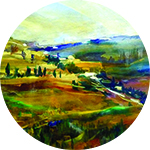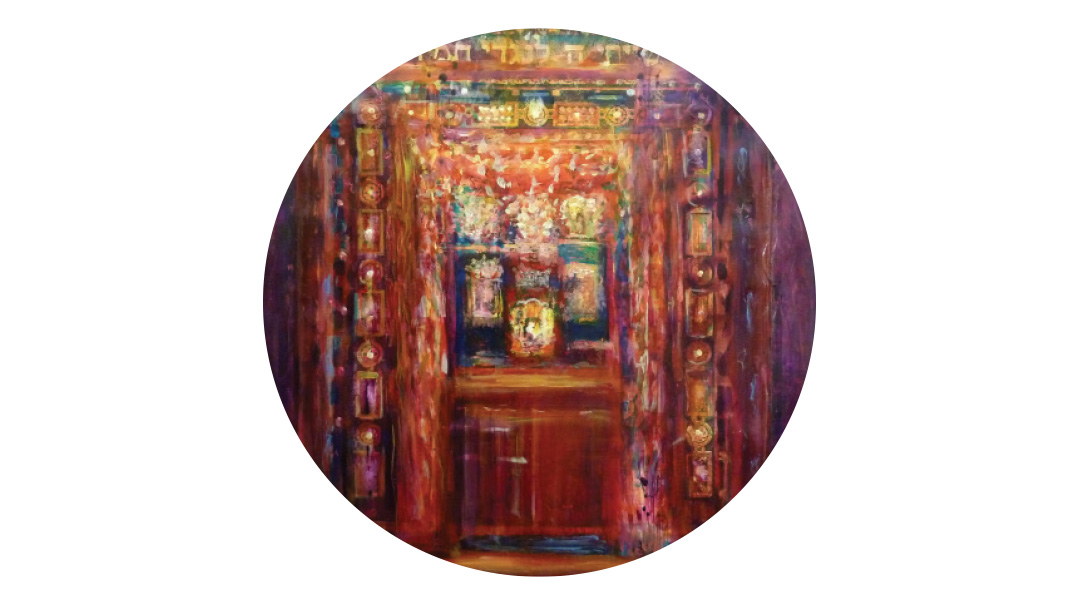Climbing Past the Pain

Mamma Rochel's cry "Yosef" is a call for us to keep going, keep climbing

Your ancient message blows over the Harei Yehudah, and it’s your legacy that we live. “V’shavu vanim ligvulam, and your children will return to their borders.” We cling to that promise.
You said, “V’im ayin, meisah anochi, without any, I am dead.” In the sefer Neos Hadesheh, Rav Avraham Bornstein, the first Sochatchover Rebbe, explains that with “ayin,” you meant emptiness and nothingness. For you, having progeny who live empty lives is indistinguishable from death.
What She Wants
Let’s try to understand what children of “nothingness” must mean to Rochel Imeinu.
In Rav Asher Weiss on Emunah and Bitachon, Rav Weiss quotes the Gra in Even Shleimah: “The primary purpose of a person’s life in This World is to break his middos. If he doesn’t correct his character, why is he alive?”
Apropos to the special year of shemittah, Rav Weiss quotes the pasuk, “Birchu Hashem, malachav, giborei koach, oseh devaro lishmoa b’kol devaro — Bless Hashem, His angels, those mighty of strength who do His bidding, to obey His word.” (Tehillim 103:20)
The Gemara in Shabbos 88a offers two opinions as to whom these giborei koach are. Rabi Yishmael interprets it to mean those who accepted the word of Hashem at Sinai without questioning why, and Rabi Yitzchak Nafcha sees it as the person who watches his vineyard lie fallow and remains silent.
The common thread between the two is that both break their fundamental nature.
At Sinai, Bnei Yisrael declared, “Naaseh v’nishmah, we will do and we will hear.” The most common question following any request is, “Why?” This is basic human nature. And those who keep shemittah! What sane business owner watches looters ravage his inventory and remains silent? This is completely unnatural.
Rochel is saying: I want children who will toil to be their best. Those who strengthen their faith and constantly work on their middos. Hashem, give me children who will cling steadfast to His word despite the bitter challenges of their extended exile.
Mamma Rochel, propel us to emulate you, a woman who fed man and animal with dignity and grace, was willing to give up a sacred destiny to protect her sister’s dignity, and harbored the desire to save her father from sin, ultimately dying young as a result of that — a woman who broke through human nature to do what was right.
Persevering in the Pain
We can understand Mamma Rochel’s true essence in the dreams and aspirations she encoded in names she chose for her long-awaited sons. She fashioned their names as a lesson in perseverance: Yosef — I want more from life, I want to serve You as a mother with every ounce of my might; and Binyamin — I’m bearing a son, I’m creating life despite the pain of childbirth, and will continue to do so, for this is my life’s task, it’s ben yamin, my source of strength, my right hand.
She taught us to persevere despite the pain of life and of galus, to find strength in it. The regality inherent in her children is hers. It’s those who suffer but don’t give in, who overcome, who rise above their natural instincts to chooser a higher path. “My children,” we can hear her whisper, “hold tight — you will not be forsaken.”
Her burial place in Beis Lechem, “baderech,” on the way, is part and parcel of who she is. As Klal Yisrael walked into their very first exile, to Bavel, they passed her kever and drew strength. This was our father Yaakov’s vision in burying her there. He foresaw his children’s future need to glean strength as they were catapulted into this bitter and long Galus.
At a gathering of women in Yerushalayim, Rav Ezriel Tauber a”h shared a story. The survival of his complete family is nothing less than miraculous. Postwar found Rav Ezriel, his brothers, and many other teenaged refugee boys in a makeshift yeshivah organized by the astounding oheiv Yisrael, Rav Michoel Ber Weissmandl ztz”l. All these boys had lost precious years of Gemara training and learning, and the Rosh Yeshivah’s goal was to bring them back to ahavas Torah and limud haTorah. Alas, the boys were unmotivated when it came to those lofty goals.
One day, Rav Weissmandl beckoned them all to gather round. “Boys,” he stated in his charismatic and emphatic way. “You’re sitting on packed bags. Get up and unpack!”
Explained Rabbi Tauber, “The greatest disappointment for the frum survivors was that British, American, and Russian soldiers redeemed them. They had thought that if they were enduring this Gehinnom, surely Mashiach Tzidkeinu would release them from those burning gates.”
But Rav Weismandl charged them with a mission: “Mashiach may come today, tomorrow, next year, in five, ten, twenty years. Open your bags. We must build! We must move on!”
This is the legacy of Rochel Imeinu and why she is mother to us all. I believe there’s a bit of Mamma Rochel in each of us.
We’ve all watched, and some of us experienced, the tragedies that have recently befallen our people. Yes, we mourn, yes, we cry, but we get up. The outcome of my pain (Binyamin) joins the will to have more, to continue (Yosef).
Dovid Hamelech challenges us to do this in the song we sing as we begin each week:
“Mi yaaleh b’har Hashem, u’mi yakum bimkom kadsho — Who will ascend Hashem’s mountain, and who will arise in His Holy Place?”
Climbing usually necessitates falling, but then we must get back up and continue to climb. This is the climb we do each week, and truly, each and every day. Rochel Imeinu embedded into our national consciousness the tenacity to do that, the tenacity we’ve proudly demonstrated throughout time.
Mamma Rochel still sits and waits to see what will be with her progeny. She’s guarded by walls of concrete that protect her and us from our foes. Her cries of old blend with the tears of today, a mix created by over two thousand years of a Galus characterized by hopeful resilience.
A Year Primed for Growth
This year’s winter is long. It’s a shanah me’uberes, a leap year, and the stretch from Succos to Pesach has an extra month. The word for a leap year, me’uberes, also means pregnant. As Rav Hirsch writes, choref, winter, has the same root as the Hebrew word cherpah, retreat. In the winter, we retreat into ourselves, introspect. This year, we get more time to do that. The allusion to the year being pregnant promotes a vision of slow growth followed by the glorious promise of birth.
Rochel’s cry of “Yosef” is a cry for us to keep going, keep climbing, to overcome the weaknesses in human nature and achieve. Her yearning to birth children is our yearning to be productive. As we look toward this winter, we entreat Hashem for besuros tovos. We hope to bring the promise to our Mamma — that we’ll live full, growth-oriented lives — to fruition.
And if and when we experience times of struggle, we’ll know how to emerge using the power of our “right hand.” As the muscles strains and flex, we show her that we remain steadfast in our faith in Hashem. After all, we are her children!
Rebbetzin Aviva Feiner is the rebbetzin of Far Rockaway’s Congregation Kneseth Israel (The White Shul), as well as a mechaneches in TAG and a visiting lecturer at Stern College.
(Originally featured in Family First, Issue 763)
Oops! We could not locate your form.







